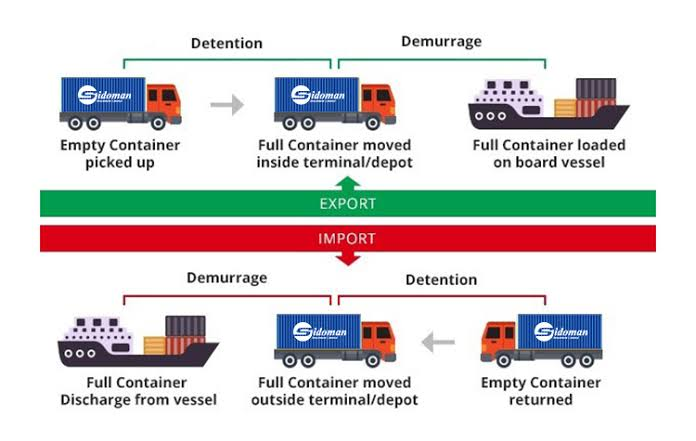
When the ship on the voyage chart is in port, the expenses of the shipowner continue. At the same time loading or unloading is controlled by the charterer, who if not held to a definite number of days to complete the work, can make the stay in port long & costly for the shipowner.
For this purpose, the charter party will set out a certain number of days for loading or unloading cargo; or it may set out a certain number of tons per day to be loaded or unloaded. The days are known as laydays (or laytime) & are specified in the charter party as working days, weather working days, running days & excepted days. If the charterer loads or unloads his cargo in less time than the number of laydays permitted, he earns dispatch money at much a day or part of a day saved. If he takes longer to load or than the number of laydays permitted, he should pay demurrage at so much a day.
Both dispatch & demurrage may be the cause of much discrepancy & argument in which the ship’s logbook can play an important part. An equally essential clause is the demurrage clause which defines that if the charterer doesn’t complete loading or unloading in the laydays permitted by the charter party, he should pay for the delay at the specified sum per day. Except if, otherwise provided in the charter party, demurrage starts from the time loading unloading should have been completed. All days are counted, whether or not cargo is worked, including Sundays, holidays & days not worked due to bad weather or other reasons. When the ship is on demurrage, it runs consecutively unless otherwise provided in the charter party.




